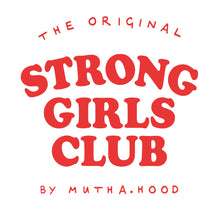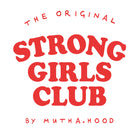I AM THE CLUB - THE SCIENTIST
Dr Louisa Preston is an astrobiologist, geologist, and author at the Natural History Museum in London. She's also the girl I used to sit next to in Biology and ever-so-casually prod or poke if I needed a helping hand. She is by far and away a truly incredibly intelligent woman and I have been so keen to share her interview in the hope that it will inspire any young women out there , that are interested, to take that step into S.T.E.M
WHAT IS IT ABOUT SCIENCE THAT YOU LOVE SO MUCH?
I love knowing how things work and why they happen .
Being a scientist is like being a detective . I am always questioning things and there is no subject more unknown and that needs to be explored more than space, especially understanding our place in it.
TELL US A BIT ABOUT YOURSELF AND WHAT YOU DO.
My role as a UK Space Agency Research Fellow (basically they fund my research) is to study some of the Earth’s most extreme environments such as those found in Antarctica, the Canadian High Arctic and Iceland, and the life (both human and microbe) that lives or once lived in them. I use these sites as examples of the kind of places and types of life-forms we think might have once existed on Mars, and use rock samples from them to test instruments that will one day be sent to Mars and beyond.
My main focus at the moment is the next European Space Agency/Roscosmos Mars mission, the ExoMars 2022 rover ‘Rosalind Franklin’, which I am on the science team for. Rosalind will drill into the crust of Mars searching for signatures of buried ancient life .
IF YOU HAD TO PICK ONE CAREER HIGHLIGHT, WHAT WOULD IT BE.
In all honesty I haven’t had it yet , and I have spent the last decade working towards it. Being part of the team to land the Rosalind Franklin rover on Mars (named to honour the scientist Rosalind Franklin (1920-1958) who made key contributions to our understanding of the molecular structures of DNA (deoxyribonucleic acid), RNA (ribonucleic acid), viruses, coal, and graphite) will for sure be my career highlight. I can guarantee that the moment we land safely and open Rosalind’s eyes for the first time I will be an emotional blubbering mess.
AND YOUR NEXT FAVOURITE?
I would say joining the staff at the Natural History Museum in London. I have loved the building and the ethos of the Museum since I was child (and of course the dinosaurs) so it really was the dream job location for me. I now have a giant sloth outside my office and have sample drawers nearby that are full of specimens from the HMS Beagle (the voyage that Charles Darwin was a part of) and the Scott expedition to Antarctica – the history and knowledge that fills the corridors instills me with such enthusiasm and purpose for my work and I won’t lie, my kids actually think I am cool finally !
WHEN YOU FIRST DECIDED TO GO INTO SCIENCE, DID YOU HAVE A PRE-CONCEPTION AS TO WHAT A SCIENTIST LOOKED LIKE?
I never thought about the fact I was ‘going into science’ or ‘doing science’. I just loved reading/hearing/watching shows about space, volcanoes, the Earth, and exploration, so chose subjects at school that incorporated all those things and then found a degree to match. I didn’t give it a label ; it was just what I was interested in. I was lucky as my dad really encouraged my curiosity in science without ever questioning it or letting me in on the ‘traditional opinion’ that it wasn’t a job for a girl .
I was interested in it and good at it, that was all that mattered.
But if anyone had asked me to describe a scientist it would have been a crazy haired, wild-eyed Albert Einstein-type figure, lab coat, glasses, probably poor personal hygiene and certainly male . This didn’t put me off doing it though, I just didn’t think about it (I know that is weird!).
AND WHAT DO YOU KNOW THEM TO BE NOW.
A scientist is the person sitting next to you on the tube, your neighbour, the exhausted mum rocking a pleather jacket at school drop off (that’s me), the man playing guitar or doing stand-up at your local on a Friday night.
A scientist can be some someone of any skin tone, any gender, any identity, any age and from any religion. There really is no ‘scientist’ look anymore, we are just normal people doing a job we love and feel passionate about. True, The Big Bang Theory did get many of the stereotypes right, and we do all know and work with a scientist who embodies Sheldon Cooper, and yes most space scientists love Star Wars and/or Star Trek. But most aren’t “nerdy, geeky, boffins etc etc”, these are just labels assigned to people who know a lot about something they find interesting and that makes other feel uncomfortable… most scientists I know wear this label as a badge of honour!
WHAT DOES YOUR AVERAGE DAY LOOK LIKE?
Same as most people’s probably …go to work, sit in office answering emails, procrastinate on social media, talk to students. That is a normal day. Some days I get to be in the lab working on experiments which is always great fun but then come the months of data analysis in front of Netflix…not so much fun.
The best days are those in the field, exploring extreme environments that mimic those on Mars and collecting samples. Mostly this involves smashing rocks with a geological hammer which I have to say is incredibly fun and very therapeutic.

WHAT’S IT LIKE BEING A WOMAN IN YOUR FIELD.
Outnumbered .
Most meetings I go to I am one of only a few women. To be honest and this is just my experience, this Y-chromosome over-abundance has never bothered me or caused me a problem. I work with the people . But I know many experience otherwise so this really is a very personal view and I am lucky it has been this way.
I would say though that being a mother in my field (as I think many mothers find in any job) is the hardest part of the job, rather than being a woman. Arriving later than most after nursery and school drop-off, leaving early for pick-up, missed days for school holidays, sickness, school trips etc. Saying no to conference travel as that means leaving my kids and my husband having to take extra time off work to help out, is a real balancing act that some days I excel at, and others I am useless and crying in the under stairs cupboard. Academic life is forgiving in this sense as I can make my own hours to suit what my family needs. Yet the voice in my head knows that to be a successful and ‘tenured’ scientist demands 150% dedication, and I am in all honesty more dedicated to my family than my research. So as long as I can keep doing what I love whilst being around for my boys as they grow-up, then I am ok with not being the most successful.
HOW IMPORTANT ARE FEMALE MENTORS TO YOU?
As I moved through my career, I really didn’t have any female mentors to look up to or ask for advice. I bounced thoughts and feelings off my girlfriends and that was more than enough. However, now I am more senior and have female PhD students and undergraduates around, I feel a massive desire to be there for them ; to support them both academically and emotionally, to help them navigate the hard and gender-biased world of academia, and to be a voice when they need someone to speak up for their rights. I hope that my support and belief in their abilities will help them to go on to have a happy and healthy career and that they in turn will pay that forward to encourage and support more women in science.
WHAT WOULD YOU SAY TO A GIRL INTERESTED IN STEM?
The negative gender stereotypes of STEM rest on the assumption that girls lack the innate ability needed for success so I make it clear to every young girl I meet that if they want it, are interested in it, and prepared to work hard for it, then they can do anything .
I make it clear that all the stereotypes about having to be to super smart are also false.
It’s about being curious, creative, logical, determined and ready to never stop learning . As Gemma can attest I was not the smartest girl in our class and always had to ask her for help in biology (not that she seems to remember this at all!!), so I always tell young girls that I worked hard and persevered to do a subject I loved even though I couldn’t and still can’t do maths to save my life. I would also say that to be engaged in STEM doesn’t mean you have to do science. So many fascinating people I work with are writers who write about science without conducting the experiments themselves, designers and architects who use science to guide their creations, and filmmakers and musicians creating the visuals and soundtracks to convey the wonders of the world and beyond. In fact, one of my current and it has to be said brilliant PhD students is also a perfumier and has used her studies to create a range of scents with the smells of space.
Anyone can be involved with STEM without actually being a scientist and STEM is so much the better for it.
IF YOU COULD GIVE A YOUNGER VERSION OF YOU ONE BIT OF ADVICE WHAT WOULD IT BE?
Stop trying to be perfect , to do everything perfectly, to please everyone – there is no such thing and it is not possible. I would have saved myself years of worry, self-doubt and guilt if I had realized this earlier!
Louisa is also a science writer and communicator, having authored and contributed to four popular science books, including her own book-baby ‘Goldilocks and the Water Bears – The Search for Life in the Universe’ published in 2016 by Bloomsbury. Her next book ‘Pioneers’ should be out in 2021.
You can grab her book (here)
And also watch her TED-ed animation discussing life in the universe (here)

